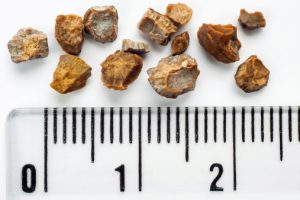 Infections from kidney stones and other urinary tract obstructions are twice as common in women as they are in men. In addition, the researchers observed higher rates of complications following one of two urgent treatments for the effects of kidney stones and urinary tract obstructions (urolithiasis).
Infections from kidney stones and other urinary tract obstructions are twice as common in women as they are in men. In addition, the researchers observed higher rates of complications following one of two urgent treatments for the effects of kidney stones and urinary tract obstructions (urolithiasis).
The research showed that women are at a higher risk for kidney stones and urinary tract obstructions – and their risk of a serious infection, including sepsis, is also higher. On the other hand, related mortality rates remain steady – a trend likely explained by the advances in medicine and treatments.
Advertisement
Lead author Jesse Sammon said, “The research study was conducted because the rate of infection related to urolithiasis was not known, and evidence was unclear about the best method for treating it.”
The study looked at nearly 400,000 patients between 1999 and 2009. During this 10-year period, urolithiasis incidences increased from 15.5 to 27.6 per 100,000 in women. In men, the increase went from 7.8 to 12.1 per 100,000. Sepsis rates were also found to be higher among women, compared to men.
Tips to prevent kidney stones
Kidney stones are considered to be one of the most painful experiences a person can undergo. For this reason, and for the fact they can lead to complications, it’s important that you prevent kidney stones as much as possible.
Diet plays a large role in the formation of kidney stones. Knowing what to eat and what to avoid can help you reduce your risk of kidney stones. Consuming a low-oxalate diet is advised, along with some of the following diet tips:
- Drink plenty of water – carry around a refillable water bottle, add lemon to your water for flavor, set reminders to drink water.
- Avoid sugary beverages like soda or fruit juices.
- Limit animal protein – dietary guidelines recommend two to three servings of animal protein a day, diversify your diet with plant-based protein like beans.
- Limit sodium in your diet.
- Eat calcium-rich foods rather than taking supplements – adults over the age of 51 need 1,000 to 1,200 mg of calcium, which can be obtained through dairy products and some dark leafy greens.
- If you’ve previously had calcium-oxalate stones, limit high-oxalate foods from your diet.
- Limit vitamin C supplementation to 1,000 mg a day and opt for food sources with vitamin C instead of supplementation.
- Avoid alcohol or limit your consumption to recommended guidelines of 10 drinks a week or no more than two drinks a day for women, and 15 drinks a week or no more than three drinks a day for men.
- Consume insoluble fiber as it helps reduce calcium in urine.
By following these helpful tips, you can have greater success in reducing your risk and preventing kidney stones.
